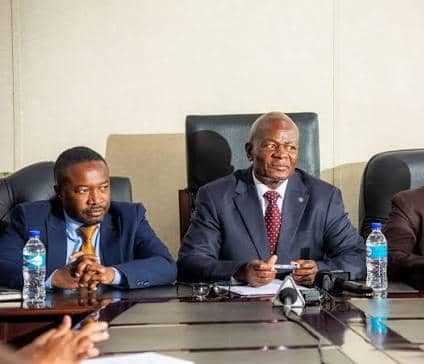
Zim Now Writer
Zimbabwe recorded a high number of unwanted pregnancies among young girls, especially during the peak of the COVID-19 pandemic in 2021, with the trend still ongoing in 2022.
According to a government report, nearly 5,000 young girls fell pregnant countrywide between January and February 2021.
The increase in teenage pregnancies was attributed to idleness because of the coronavirus lockdown and poverty.
School closures increased young girls’ vulnerability to child marriages, early pregnancies, and gender-based violence.
Pregnant adolescents experience distinct disadvantages that are not simply a function of their age, and these have an impact on their health and that of their babies. Teenage girls often have little or no say in decisions affecting their bodies and lives. They either have little or no information on sexual reproductive health, and this is worsened by misconceptions surrounding contraception for young people.
Upon realising that she was pregnant at 15 years, Kudzai felt worthless and lost all her hope, as she watched her dreams slip away. She knew all too well the stigma that surrounding early pregnancy in her community and at school and that she could not continue with her education.
Related Stories
For most young girls like Kudzai, pregnancy is not the result of a deliberate choice.
“I was about to write my Ordinary Level at a local secondary school when it happened,” Kudzai narrates.
A taxi driver lured her into a relationship and got her pregnant. He used to ferry her to school and ended up offering free rides in exchange for sex.
MSF started the Adolescent Sexual and Reproductive Health (ASRH) project in 2015 in the Mbare suburb in Harare. The project provides a comprehensive and free SRH package which is adolescent-friendly including access to HIV Testing Services, sexuality education, counselling, and access to contraception and Sexually Transmitted Infection (STI) treatment.
“We have adolescent boys and girls who frequently visit MSF adolescent-friendly clinics to have HIV testing, counselling services, mental health support and access to other sexual reproductive health services.
“With the realisation that most of the teenage girls coming to our clinics in Mbare suburb were pregnant, we formed a teen mums club to offer medical care and psychosocial support to the pregnant young girls,” says Grace Ayuelu, MSF, Mbare Project Medical Representative.
A teen mums club comprises 20-25 members of expecting young mothers - each group graduates after following a twelve-week curriculum (three months). However, the teen mums will continue getting support from MSF clinicians for up to six months into post–natal period.
After the adolescent mothers graduate from the MSF teen mums club, they are then trained on various income-generating activities (these include manicure, pedicure, making dishwashing soap and making toilet cleaning detergents) by MSF teams to empower them whilst getting entrepreneurial skills.



















Leave Comments